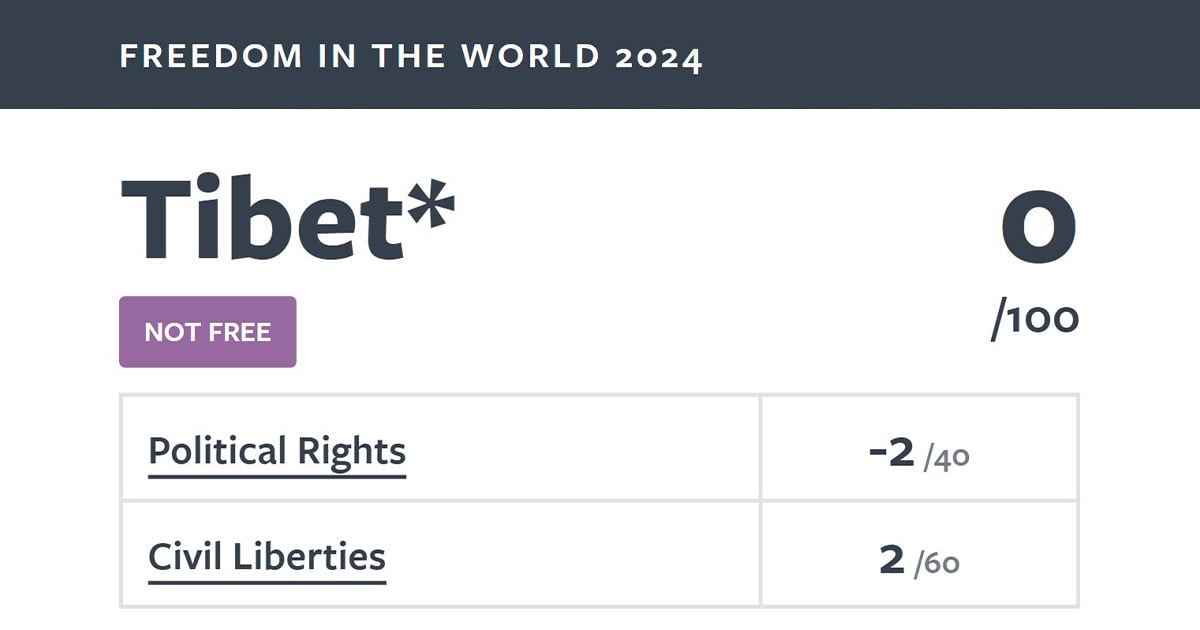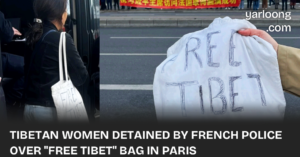
In a recent report by Freedom House, Tibet has been given a global freedom score of zero, highlighting the severe impact of 65 years of Chinese rule over the region. This revelation comes from the watchdog group’s latest “Freedom in the World” report, underscoring the dire situation in Tibet under Chinese occupation.
International Campaign for Tibet President, Tencho Gyatso, expressed deep concern over Tibet‘s freedom score. “This score leaves no doubt that China’s occupation of Tibet has been a global catastrophe,” Gyatso stated, calling for the Chinese government to engage in peaceful dialogue with Tibetan leaders to address the occupation’s failings.
The 2024 Freedom House report, which was released on February 29, 2024, paints a grim picture of political and civil liberties in Tibet. With a political rights score of negative 2 out of 40 and a civil liberties score of 2 out of 60, Tibet‘s overall score of 0 out of 100 marks its worst rating in at least eight years.
This announcement comes as Tibetans are preparing to commemorate the 65th anniversary of the Tibetan National Uprising on March 10, and the Dalai Lama’s flight into exile on March 17, 1959. The report highlights various forms of repression faced by Tibetans under Chinese rule, including restrictions on practicing Buddhism, speaking their language, and raising their children.
A particularly alarming development reported by Freedom House is the state-run boarding schools in Tibet, which have separated over 1 million Tibetan children from their families. These schools enforce a curriculum focused on Chinese subjects in an effort to assimilate Tibetan children into Chinese Communist Party loyalists, a policy known as “Sinification”.
ALSO READ: Tibetans Face Harsh Treatment After Dam Protest in Dege County
Human Rights Watch has also reported that China has collected DNA from around 1 million residents of the Tibet Autonomous Region without consent, including from children as young as 5.
Moreover, China‘s tightening grip on Tibet’s borders has made it challenging for foreign journalists, diplomats, tourists, and Tibetans seeking refuge to enter or leave the region.
Despite these hardships, Tibetans continue to resist Chinese policies. A recent example of this resistance is the mass protests in Derge County against a proposed hydropower dam that threatens several Buddhist monasteries and villages. Over 1,000 protestors were reportedly arrested.
The plight of Tibet has gained increasing attention internationally. At the UN Human Rights Council’s Universal Periodic Review of China in January, concerns about Tibet were raised by a number of states, showing a significant increase compared to the last review in 2018.
In a move to support Tibet, the US House recently passed the Promoting a Resolution to the Tibet–China Dispute Act, also known as the Resolve Tibet Act. This bipartisan bill aims to encourage the Chinese government to negotiate with Tibetan leaders to resolve the occupation issue.
As Tibet‘s freedom score reaches an all-time low, the international community’s support and advocacy for the rights and freedoms of the Tibetan people have become more critical than ever.






